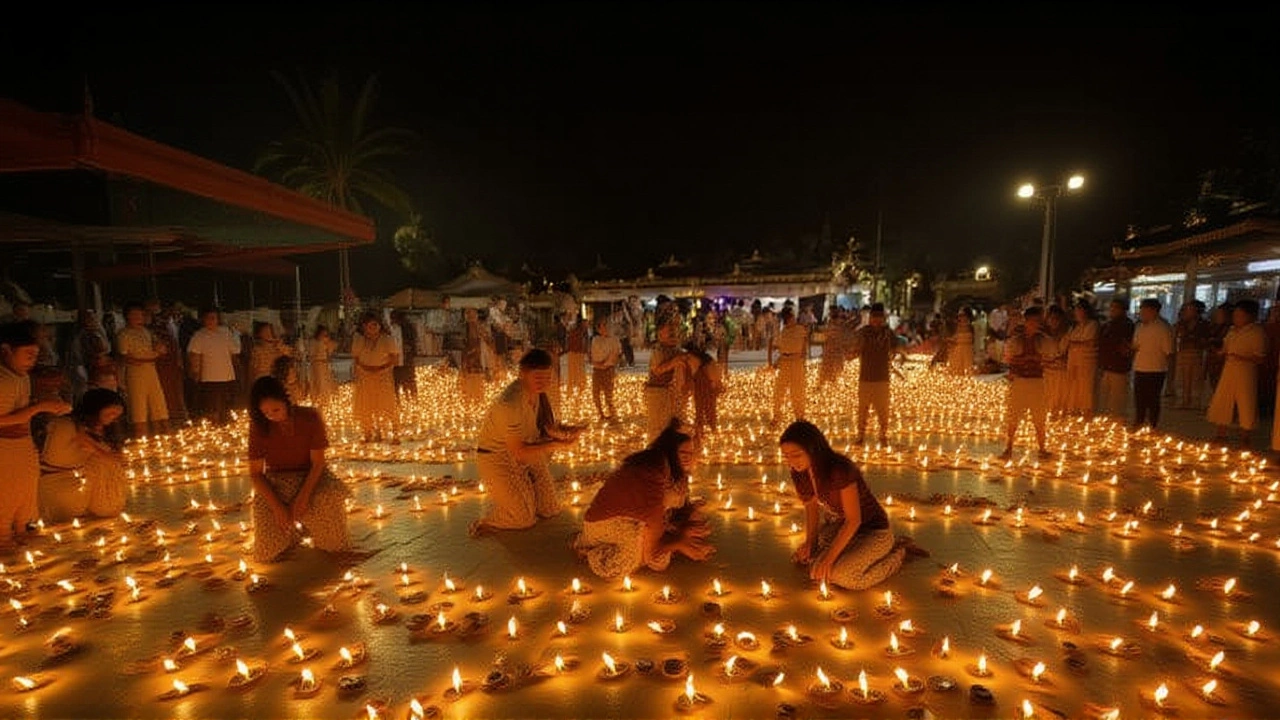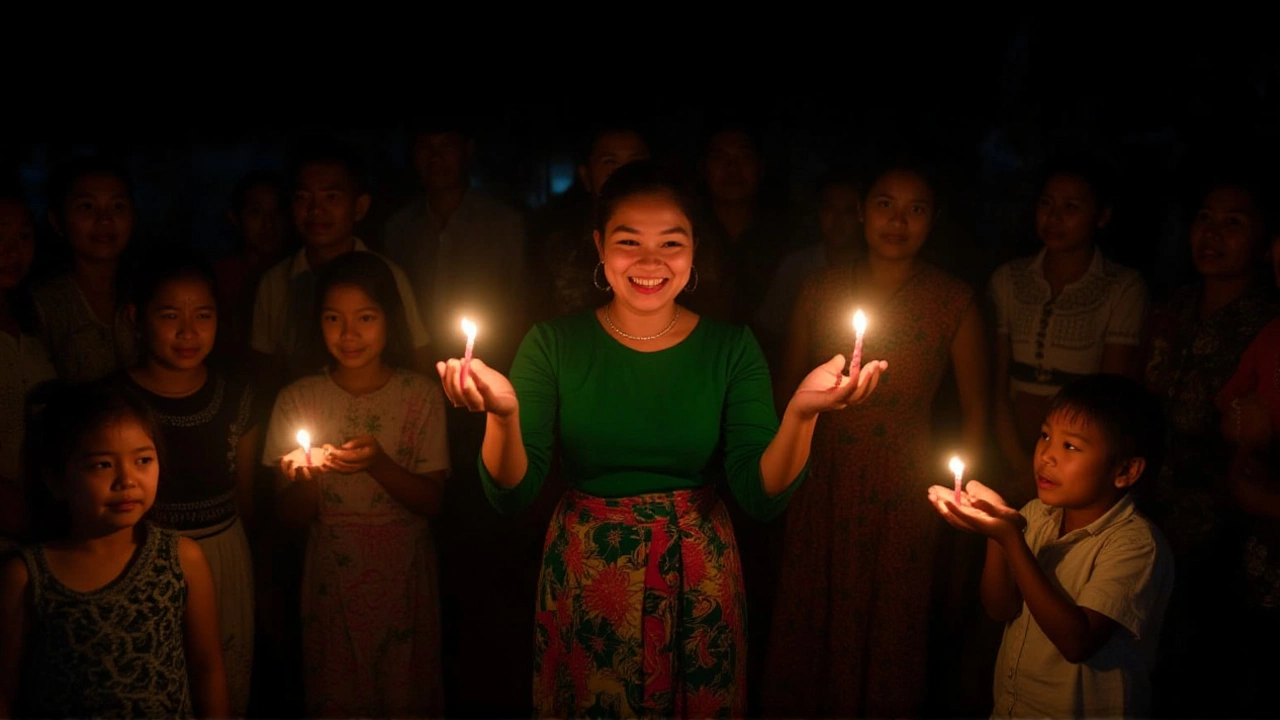On Oct. 6, 2025, a deadly paramotor attack ripped through a candlelit Thadingyut Festival vigil in central Myanmar, killing at least 20 civilians and wounding dozens more. The strike unfolded in Chaung-U Township, Magway Region, when low‑flying motorised paragliders dropped 120‑mm mortar rounds on a crowd demanding the release of political detainees and an end to forced conscription.
Witnesses later identified the aircraft as single‑seat paramotors, a weapon the military junta has turned to after fuel shortages crippled its traditional air force. The assault came just as Senior General Min Aung Hlaing’s forces were gearing up for a November election that the United Nations has already deemed illegitimate. Matt Smith, Amnesty International’s Senior Crisis Advisor for Myanmar, condemned the strike, while Liz Throssell, spokesperson for the United Nations Office of the High Commissioner for Human Rights, warned that such indiscriminate use of mortars violates international humanitarian law.
Background: A Conflict That Has Escalated Since 2021
The October massacre is part of a broader pattern that began after the military coup on Feb. 1, 2021. Since then, the junta has launched over 240 attacks – 171 of them air strikes – between March and September 2025, according to the UN High Commissioner’s office. Resistance forces, led by the National Unity Government and its affiliated People’s Defense Forces, now control roughly 42 % of Myanmar’s 74,382‑square‑mile territory, a sharp rise from just a few percent a year ago.
Fuel scarcity has forced the military to adopt cheaper, low‑tech platforms. Reports from the United Energy Group (Myanmar) Limited show the junta imported 15,000 metric tons of aviation fuel via Thai border routes in 2024, directly contravening UN Security Council Resolution 2669 (2022). The paramotor strategy, while cheaper, is terrifyingly imprecise – the machines roar overhead like chainsaws before dumping unguided mortars into densely packed neighbourhoods.
Details of the Chaung-U Paramotor Assault
At around 8:00 p.m., the first paramotor swooped low over the vigil, releasing a salvo of mortars that exploded among rows of candle‑lit tables. Initial casualty figures put the death toll at 17, including a child under five, with more than 30 injuries. A second wave struck at 11:00 p.m., smothering the already panicked crowd in smoke and shrapnel.
- Number of civilians killed: ≥ 20 (including 3 children)
- Injured: ≈ 45, many with severe limb loss
- Weapons used: 120‑mm mortar rounds launched from paramotors
- Location: Main square of Chaung-U Township, Magway Region
- Time: 20:00 and 23:00 local time, Oct. 6, 2025
Eyewitness “It sounded like a giant chainsaw. We thought it was a celebration, then the sky lit up with fire,” recalled a local shop owner, who asked not to be named for safety reasons. The United Nations Human Rights office confirmed that similar paramotor runs have been documented in at least five other townships since March 2025.
International Reactions and Calls for Accountability
Matt Smith issued a stark demand on Oct. 7: “All parties must cease indiscriminate attacks on civilians and civilian infrastructure. Targeted sanctions against the aviation units responsible for these paramotor assaults are overdue.” The statement echoed a parallel warning from Liz Throssell, who stressed that the principle of distinction under the Geneva Conventions has been blatantly ignored.
The International Criminal Court prosecutor Karim Khan earlier opened a preliminary examination into potential war crimes after a January 2024 airstrike on a church in Sagaing that killed 17 civilians, including nine children. Human rights NGOs argue that the Chaung‑U massacre should be added to the ICC’s docket, especially given the pattern of using low‑altitude aircraft to deliver mortars in civilian zones.
Humanitarian Toll: Displacement, Conscription, and Fear
The attack deepens an already massive displacement crisis. The UN’s Office for the Coordination of Humanitarian Affairs (OCHA) reported on Oct. 5 that 3.24 million Myanmar citizens remain internally displaced, with 786 000 fleeing in 2025 alone due to intensified junta offensives. Forced conscription has surged; the Assistance Association for Political Prisoners (AAPP) recorded 15 200 civilians drafted between Jan. and Sep. 2025, many of whom were pulled from the same communities now grieving the Thadingyut vigil victims.
Beyond the immediate loss of life, the psychological impact is profound. Families of the dead have opened “memorial walls” in village squares, a symbolic act of defiance that the junta has repeatedly tried to suppress. Yet the fear of another night‑time strike looms large, hampering traditional festivals that once offered communal respite.

Implications for the Upcoming November Election
The junta’s Union Election Commission announced on Sep. 1 that elections will go ahead on Nov. 15, despite controlling merely 13 of the country’s 330 townships. Opposition groups, including the NUG and 18 ethnic armed organisations in the Federal Council, have slammed the vote as a façade. The UN General Assembly’s Resolution A/78/L.50, adopted June 14 2024, already refused to recognise the junta’s authority to organise elections.
With the paramotor assault fresh in the public consciousness, international pressure is likely to mount. Western governments have hinted at expanding sanctions to cover the military’s aviation fuel supply chain – a move that could further cripple the junta’s paramotor operations but also risk tightening the humanitarian blockade on civilians.
What’s Next? Monitoring, Sanctions, and Potential Negotiations
Humanitarian organisations are calling for an urgent UN‑mandated investigation into the Chaung‑U attack, alongside immediate delivery of medical aid to the injured. Meanwhile, diplomatic channels are buzzing: the United States, European Union, and Japan are reportedly drafting a coordinated sanctions package targeting the aviation units and the fuel‑logistics firms linked to United Energy Group.
On the ground, resistance fighters are said to be planning a joint offensive towards Mandalay, aiming to capture the city before the November vote. Whether this will force the junta to the negotiating table or simply spark another wave of bloodshed remains to be seen.
Frequently Asked Questions
How does the paramotor attack affect civilians in Magway Region?
The strike killed more than 20 people, injured dozens, and intensified fear of night‑time assaults. It also disrupted the annual Thadingyut Festival, a vital cultural event, leaving families traumatized and local economies stalled as markets close out of safety concerns.
What led the junta to use paramotors instead of conventional aircraft?
Severe fuel shortages after international sanctions forced the military to seek cheaper, low‑profile platforms. Paramotors consume far less aviation fuel than jets and can operate from makeshift launch sites, making them attractive despite their inaccuracy.
Who are the main groups opposing the junta ahead of the November election?
The opposition coalition includes the National Unity Government, its People’s Defense Forces, and ethnic armed organisations such as the Arakan Army, Karen National Union, and Ta’ang National Liberation Army. Together they control roughly 42 % of the country’s territory and have vowed to boycott the election.
What international actions are being considered after the Chaung‑U massacre?
The UN Human Rights office is preparing a formal investigation, while the United States, EU and Japan are drafting sanctions targeting the junta’s aviation fuel supply chain and the paramotor units responsible for civilian attacks.
What does the paramotor strike mean for the upcoming election?
The massacre underscores the junta’s willingness to use indiscriminate force to intimidate voters. International observers warn it could depress turnout, delegitimize the vote further, and possibly trigger additional sanctions or diplomatic isolation.
